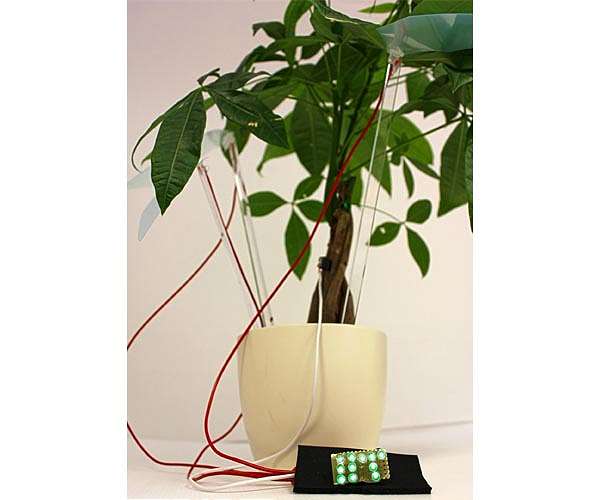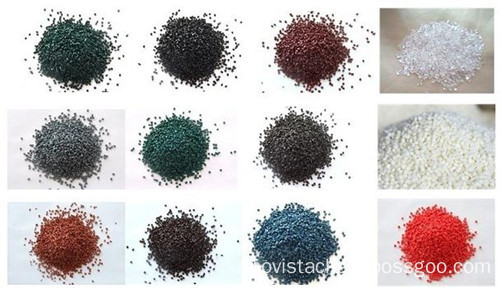Obtaining pollution-free, environmentally friendly and sustainable energy is one of the major challenges in the future world. A team of interdisciplinary robots and biologists at IIT-Istituto Italiano di Tecnologia in Pontedera (Pisa, Italy) found that living plants can help provide electricity.
Fabian Meder, Barbara Mazzolai and their colleagues at IIT discovered that live plants are actually "green" power sources and may become one of the power providers of the future. They can be perfectly integrated into the natural environment and used worldwide.
The researchers found that the plant can generate more than 150 volts from a single leaf, enough to power 100 LED bulbs at the same time. The researchers also show that "hybrid trees" made from natural and artificial leaves can be used as an innovative "green" generator that converts wind into electricity.
The research team is located at the IIT Microbial Robot Center (CMBR) in Pontedera (Pisa, Italy) and is coordinated by Barbara Mazzolai. Their goal is to conduct advanced research, develop innovative methods, use robotics and new materials, and receive inspiration from nature.
Therefore, biologically inspired methods can help develop robots and technologies that are more suitable for unstructured environments than today's solutions. In 2012, Barbara Mazzolai coordinated the EU-funded Plantoid project, which realized the world's first plant robot. In the last study, the research team conducted research on the plants, and the results showed that when the leaves are touched by different substances or wind, they can generate electricity.
Due to the specific mechanism that most plant leaves naturally form, certain leaf structures can convert the mechanical force applied to the leaf surface into electrical energy. In detail, due to a process called contact electrification, the blade is able to collect charge on its surface. These charges are then immediately transferred to the internal tissues of the plant.
Plant tissue functions like a "cable" and transmits the generated electricity to other parts of the plant. Therefore, by simply connecting the "plug" to the plant stem, the electricity generated can be harvested and used to power electronic devices. IIT researchers have shown that the voltage generated by a single leaf may reach more than 150 volts, enough to power 100 LED bulbs at the same time each time the blade is touched.
In this article, the researchers also describe for the first time how this effect is used by plants to convert wind into electricity. Therefore, the researchers modified the Nerum oleander tree with artificial leaves that were in contact with natural oleander leaves. When the wind blows through the plants and shakes the leaves, the "hybrid tree" generates electricity. The more leaves you shake, the more electricity you generate. Therefore, by using the entire surface of the tree or even the forest, the scale can be easily expanded.

This hybrid plant is composed of natural leaves and artificial leaves. When the wind blows the plants and shakes the leaves, this "hybrid tree" will generate electricity.
This research is the first necessary step of a new project to be coordinated by Barbara Mazzolai in 2019. The project is a European-funded Growbot project whose purpose is to realize biological robots and achieve plant-like growth movements. The new robot will be partially powered by new plant energy, indicating that it may become one of the sources of electricity supply in the future and can be used worldwide.
The results were published in Advanced Functional Materials.
(Original source: Daily Biofuel China New Energy Network Comprehensive)
Pmma Copolymer for Extrusion Super Cover
Pmma Impact Modifier resin is a new weather-resistance engineering plastics synthesized by acrylate. It has excellent impact strength and processability, super weather-resistance, good surface hardness and glossness,in addition has good optical performance. It is mainly used in co-extrusion with PVC / ABS / PS and also single extrusion.

Pmma Impact Modifier, Pmma Co-Extrusion, Pmma Polymer
Shandong Novista Chemicals Co.,Ltd (Novista Group) , https://www.novistachem.com